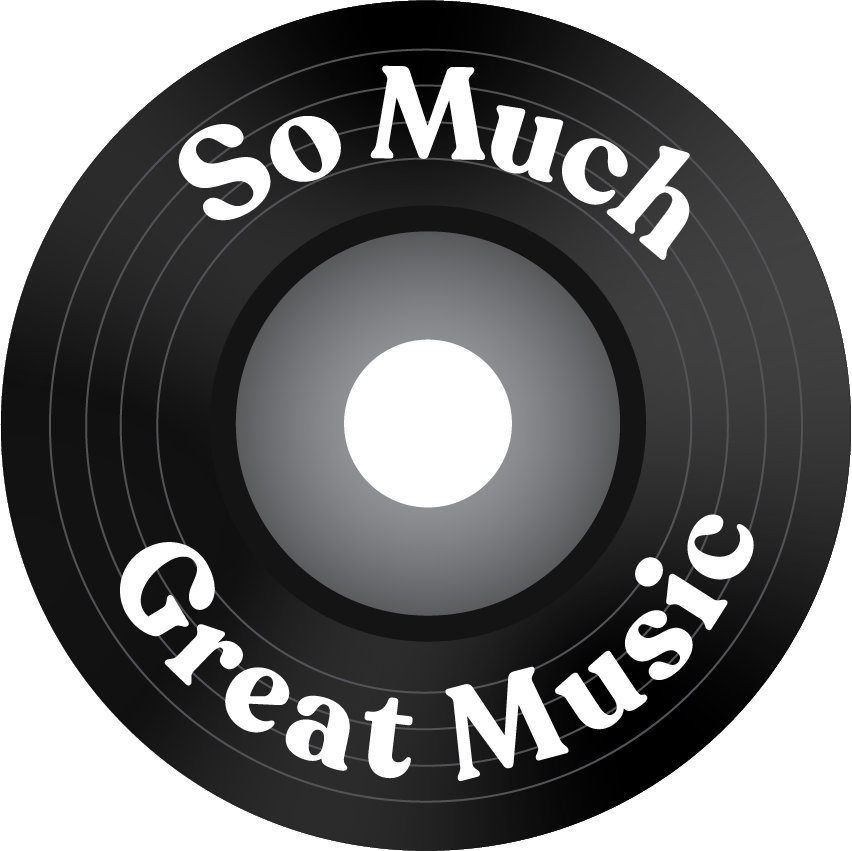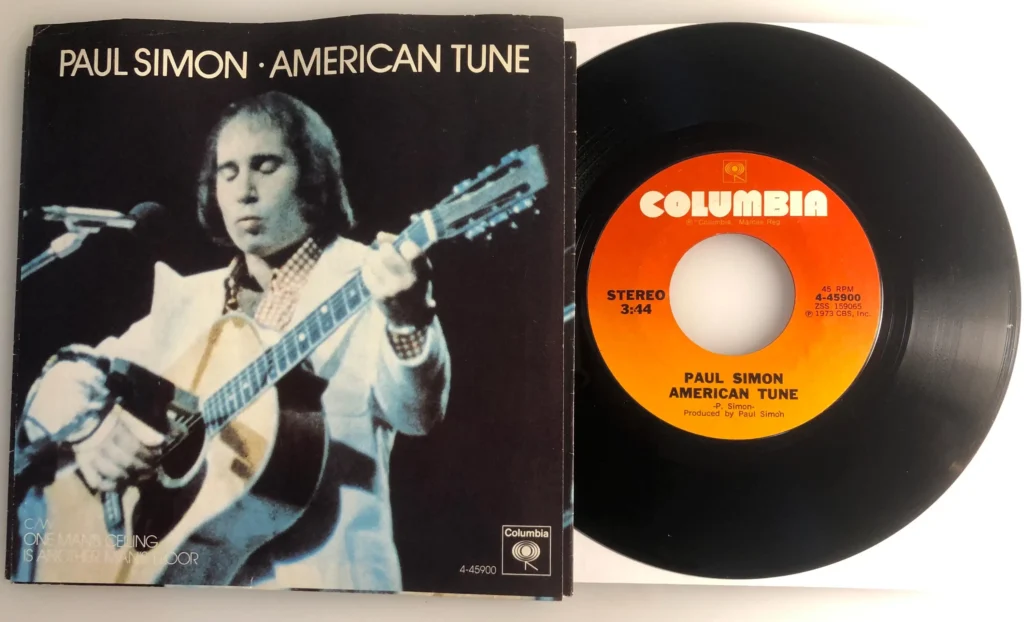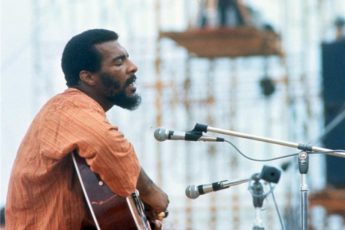Be honest, are you familiar with this tune from its title? Go ahead and raise your hand if so, but mine would be staying down. I mean, ask me to list the top 10, even 20, songs by the great Paul Simon, and this wouldn’t have come near my count. Don’t believe me? Okay then, have a look at these, in no particular order (and yes, we’re including Simon & Garfunkel songs here; don’t try to get funny with me):
‘Bridge Over Troubled Water,’ ‘The Sound of Silence,’ ‘The Boxer,’ ‘Graceland,’ ‘Mrs. Robinson,’ ‘Still Crazy After All These Years,’ ‘America,’ ‘Loves Me Like A Rock,’ ‘Homeward Bound,’ and ‘You Can Call Me Al’
That’s 10 already, without even trying. Let’s keep going.
‘50 Ways To Leave Your Lover,’ ‘Late in the Evening,’ ‘My Little Town,’ ‘Slip Slidin’ Away,’ ‘Kodachrome,’ ‘Cecilia,’ ‘Diamonds on the Soles of her Shoes,’ ‘Me and Julio Down By the Schoolyard,’ ‘Mother and Child Reunion,’ and ‘Scarborough Fair’
There, now we’re at 20, and I could easily keep going. I haven’t even named ‘The 59th Street Bridge Song (Feelin’ Groovy)’ or ‘The Obvious Child’ or ‘The Boy in The Bubble’ or ‘I Am A Rock’ or ‘A Hazy Shade of Winter’ or…Jeez, what the hell were we even originally talking about here? Oh yeah, ‘American Tune.’
Look, it’s not even Paul Simon’s most famous song about America – which is, that’s right, ‘America.’ But you know it, I guarantee you know it. As do I, of course. It’s just that the proper title to this 1973 track somehow never seeped into my consciousness even after hearing the song over all these years. Well, I heard it again this week. And, after recovering from my initial surprise as to what the song is actually named, I listened to it. Intently. Reflected on it. And it rocked me. Not rocked in the rock and roll sense, no, it jarred me. Viscerally. And on multiple levels: musically, lyrically, and, sadly, socio-politically. Retrospectively, I think it may actually be Simon’s single greatest work. Glance back at those 25 classics listed above; not a shred of disrespect to any one of them – that’s a monumental roster likely matched by precious few in popular music history. Yet this tune, this masterpiece ‘American Tune,’ exists on some astral plane. I think it’s more than music, it’s metaphysical.
But first, the music. If there’s a sense that the melody, progressions and structure seem more, say, sophisticated, than that of a typical pop song, it’s due to the fact that Simon, in effect, had a noteworthy collaborator in its creation: the composition was based on a chorale by Johann Sebastian Bach (only a songwriting genius like Simon would dare to co-compose with Bach). The simple grace of the restrained arrangement warmly envelops the experience of hearing it, and is highlighted, for me, by the rising strings as you enter the third verse, initiating a whole other¹ part of the song. Normal mortals try to write catchy, quality songs, but legends like Simon, McCartney and Elton John are able to readily create two distinct, brilliant sections and just combine them into the same one. The result here is at once transcendent and, perhaps in its imagery, even hallucinatory. Man, those strings; if you listen to this passage (beginning with “And I dreamed I was dying”) and really focus on them, you may well get chills or tears (or both). Simon, it seems clear, is a master of the secular hymn.
Then there’s the lyrics, and where do you even begin? “How could anybody have written a song like that? It’s staggering,” former N.Y. Times music critic Robert Hilburn said upon the release of his 2018 Simon biography The Life. Paul Simon himself once said: “I don’t write overtly political songs, although ‘American Tune’ comes pretty close. It was written just after Nixon was elected.” It is, overall, an elegy for lost dreams. Yes, it’s emblematic of the squandering of 1960’s idealism and the national heartaches of the moment. It is a rueful mixture of nostalgia, disappointment and melancholy, yet in some way still hopeful. Or at least hopeful that you can carry on. And in refusing to drown in despair it also conjures resilience. “Much of the power of ‘American Tune’ is in Simon’s voice,” read an L.A. Times retrospective on the song in 2019. “It does not ring with the loud anger that runs through our time. It is mournful, as if unspooling in the candlelight of a day’s end, in the place where a man’s battles give pause until dawn. The song is searing in its tenderness, poetic in its indictment. It is political without being so.” Like any bit of classic songcraft, the lyrics are so personal and yet universal. Seriously, how many songs have both the beauty and power as this one?
And therein leads us to its final key, albeit troubling, aspect: the continued stark relevance of ‘American Tune,’ more than 50 years after it was written. It was conceived as a reaction to specific events – Nixon had won landslide re-election in 1972 despite being embroiled in the Watergate scandal and having presided over the by-then vastly unpopular Vietnam War – thereby marking a significant low point for the Progressive political movement. And, well, here we are. Where the buffoonish acts of a botched robbery and erased audiotapes seem nothing but quaint in comparison to the daily assaults on reason, morality, and The Constitution. The resignation, weariness and gritty need for resolve so acutely captured in ‘American Tune’ just keeps hitting harder. And deeper. But being resilient doesn’t mean that you’re thriving, it just means that you’re able to get up and continue the grind. Can we still do that? Can America still meet that minimum national threshold in the year 2025? I sure hope so. But first, tomorrow’s going to be another working day and I’m trying to get some rest.
¹In how many conversations in your life have you heard someone state some variant of “that’s a whole nother thing”? Nother is, in a word, not a word. Please address anyone you observe saying this, as I annoyingly do, by asking “a whole what thing?” and watch their discomfort grow as it dawns on them that they’re heedlessly using a made-up word. Dear readers, help me rid the world of the scourge of “nother.”
American Tune
Many’s the time I’ve been mistaken
And many times confused
Yes, and I’ve often felt forsaken
And certainly misused
Oh, but I’m alright, I’m alright
I’m just weary to my bones
Still, you don’t expect to be bright and bon vivant
So far away from home, so far away from home
I don’t know a soul who’s not been battered
I don’t have a friend who feels at ease
I don’t know a dream that’s not been shattered
Or driven to its knees
But it’s alright, it’s alright
For we lived so well so long
Still, when I think of the
Road we’re traveling on
I wonder what’s gone wrong
I can’t help it, I wonder what’s gone wrong
And I dreamed I was dying
I dreamed that my soul rose unexpectedly
And looking back down at me
Smiled reassuringly
And I dreamed I was flying
And high up above my eyes could clearly see
The Statue of Liberty
Sailing away to sea
And I dreamed I was flying
We come on the ship they call The Mayflower
We come on the ship that sailed the moon
We come in the age’s most uncertain hours
And sing an American tune
Oh, and it’s alright, it’s alright, it’s alright
You can’t be forever blessed
Still, tomorrow’s going to be another working day
And I’m trying to get some rest
That’s all I’m trying to get some rest







Leave a Comment